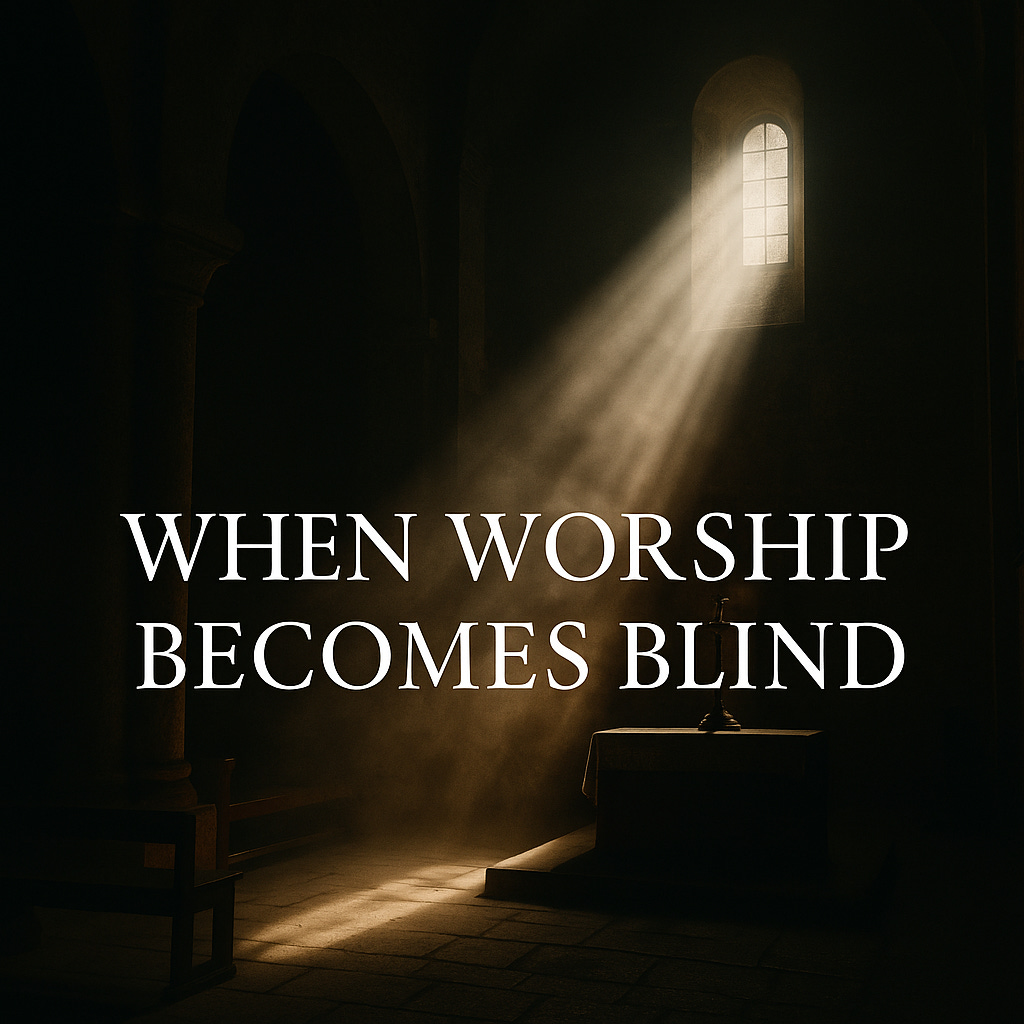When Worship Becomes Blind
Thoughts from Isaiah 29:1-14
Jerusalem kept the calendar of faith.
Feasts came and went. Songs filled the city. Sacrifices burned on the altar.
But God called the city Ariel—“the altar hearth,” a place where fire consumes.
The tragedy was not ignorance. It was blindness.
The people of Judah were going through sacred motions while missing divine reality.
The Lord was present, active, and shaking the earth. Yet they could not see it.
The Fire They Couldn’t Name
Isaiah saw what others refused to notice.
God’s hand was moving in both judgment and mercy.
He would surround the city, break its pride, and let it whisper from the dust.
Even then, the people would fail to recognize who was acting.
They had divided hearts.
They honored God with words while training their spirits to sleep.
Their prophets and visionaries were silenced by self–deception.
The book of God’s purposes was sealed to them—not by ignorance, but by indifference.
Religion by Reflex
They still worshiped.
They still obeyed rules.
But their obedience was automated. Their reverence was a routine.
Faith had become liturgical muscle memory—actions without awareness, words without wonder.
When worship becomes reflex, it stops forming us.
It performs us.
It shapes us into people who mistake repetition for righteousness.
The Moment of Awakening
God’s answer to this dullness was not explanation but eruption.
Thunder. Earthquake. Whirlwind.
A consuming fire meant to awaken his people to reality.
Judah thought her enemies were Assyria.
Isaiah knew the real conflict was between blindness and vision, between performance and presence.
God was behind the upheaval, using foreign armies as the visible clothing of his invisible work.
The tragedy was that they could not tell the difference.
The Modern Echo
We are not so different.
We hold services.
We keep rhythms.
We repeat prayers.
But the danger is the same—believing that motion equals meaning.
We can perform faith so well that we stop perceiving God.
We can lead organizations, manage teams, and attend church, while missing the living presence that makes it all holy.
God still unsettles systems that drift into autopilot.
He still uses disruption to reveal dependence.
He still acts in ways that look, at first, like loss.
A Call for Leaders
For spiritual and organizational leaders, Isaiah 29 is a mirror.
When our systems work too smoothly, we risk mistaking process for presence.
When success blinds us, God may let the ground move beneath our feet to restore sight.
True leadership in faith or business begins with seeing reality as God defines it.
It means naming the blindness that comfort creates.
It means refusing to worship by rote or lead by routine.
God’s people in Jerusalem did not stop believing.
They stopped perceiving.
They no longer recognized that the shaking of their world was the movement of his hand.
And so God promised to astound them again.
To strip away false wisdom.
To silence clever intelligence.
To awaken them through wonder.
That promise still stands.
When worship becomes blind, God will act until we see again


